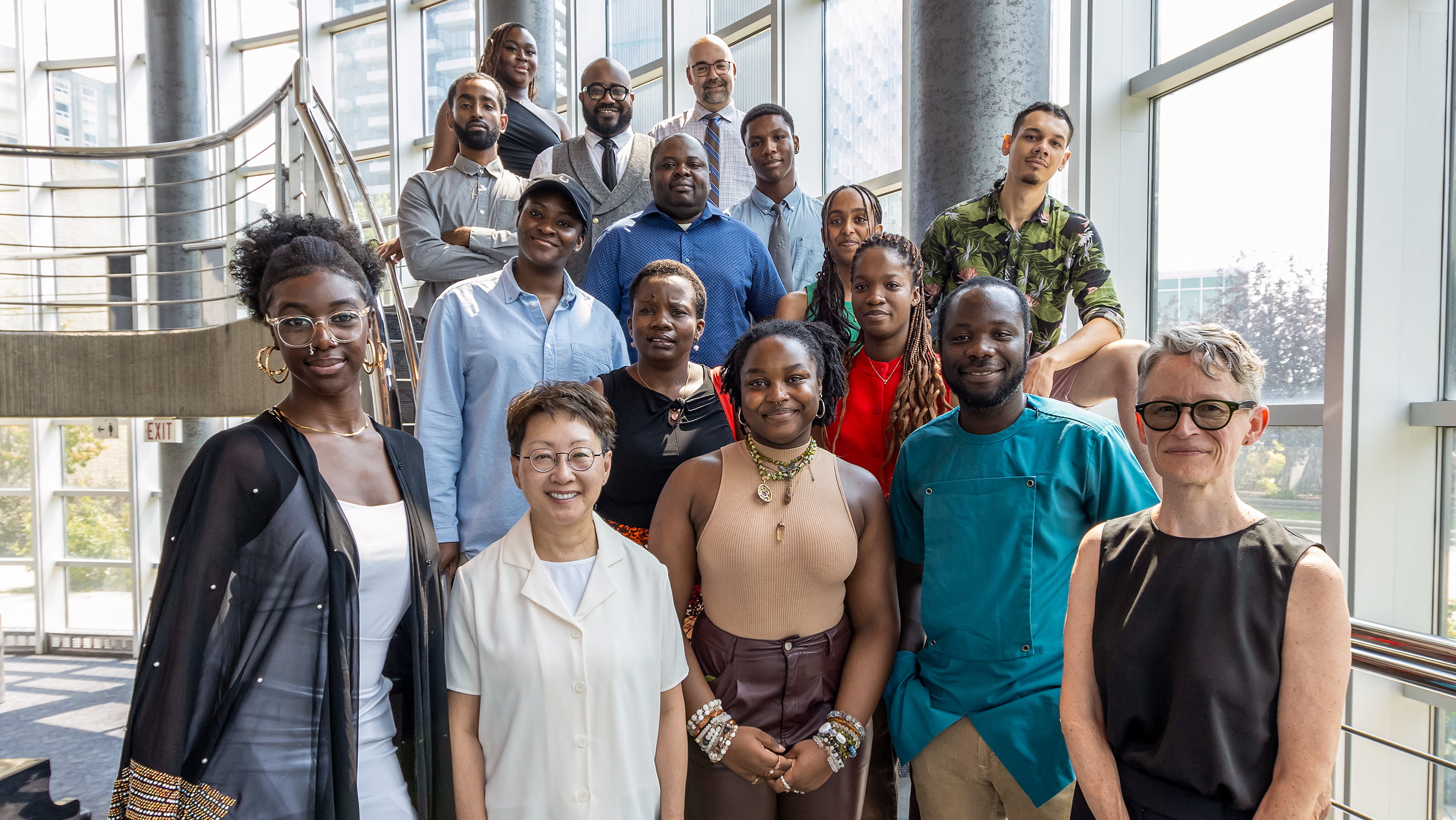After graduating with a degree in psychology and economics last spring, Maobi Obikwelu was unsure about what came next.
“I was feeling conflicted about what my path should be,” she says.
Then she heard about a new mentorship program at the University of Alberta called Black Youth for Social Innovation (BYSI), which offers comprehensive, paid work-integrated learning experiences for Black students in their fields of interest.
Housed in the College of Social Sciences and Humanities, the program is influenced, developed and crafted by the youth involved so the mentorships target skills they want to learn. With a certificate in applied social science research along with her degree, Obikwelu found she was becoming increasingly interested in pursuing that field of research.
“I realized I was passionate about the social and political climate, and enacting change in the lives of people, especially marginalized communities and the demographic I’m part of — Black youth,” says Obikwelu.
BYSI was launched this summer by political science professor Jared Wesley and doctoral candidate Seon Yuzyk, after they completed a revealing national study of Black youth mentorship programs across Canada.
Following the death of George Floyd in 2020, and a growing awareness of the systemic challenges faced by Black youth — along with the disproportionate effects of the COVID-19 pandemic — a number of mentorship initiatives emerged to offer a diverse range of services including academic and career guidance to financial literacy, and leadership development.
But Wesley and Yuzyk found a number of service gaps. Such mentorship programs were scarce in Western Canada, and there was a dearth of programs for Black and queer youth and for young Black women.
The researchers also uncovered a prevalent assumption that mentorship programs are only for “at-risk” youth, when in fact they can serve as “beneficial tools in helping youth develop leadership skills and self-confidence, and provide them with a sense of belonging and community.”
“No one was asking what youth themselves wanted — what they wanted to create in the world,” says Yuzyk. “How do they see the future?”
“When we sat down to create a mentorship program, youth needed to be front and centre.”
With support from Canada Summer Jobs, Wesley and Yuzyk set about consulting Black youth on their preferences, recruiting students from faculties across campus. The 10 selected this year all participated in the program’s design.
They also took on a range of research topics under the supervision of academic and community mentors. They studied topics such as the importance of cultivating an “urban forest” for outdoor recreation, community engagement and food security, and factors that influence successful entrepreneurship in Canada. The placements were all aimed at nurturing leadership skills in the next generation to create a more pluralistic world.
Obikwelu took up a project under Wesley’s Viewpoint Alberta initiative, examining how attitudes on government performance, state involvement and citizen responsibility in the province have shifted away from the “wild west” political culture of “western alienation, frontier masculinity, prosperity doctrine and bootstrap individualism.”
Through her own survey analysis, Obikwelu found that the average Albertan turns out to be a middle-aged, blue-collar woman. She also discovered that Albertans are more centrist in their political views, rather than far to the right or left of the political spectrum.
“There are mentorship programs that create a space for Black youth, but not many that target Black youth creating the change,” she says. “This is an opportunity to develop creativity and innovation, connecting us with positions that will allow us to further our ideas.”
After completing their projects, all of the participants in the program volunteered to stay on and assist with its ongoing design.
“We have a diverse group of students, and they bring such different skill sets,” says Yuzyk, adding that they continue meeting every week to discuss transformational professional development skills, emphasize the importance of mental health and give each other tips on how to deal with challenging situations.
“We’re all working together,” says Obikwelu, “teaching each other about our various research projects and previous experiences and how we’re shaped by the connections we have.”
